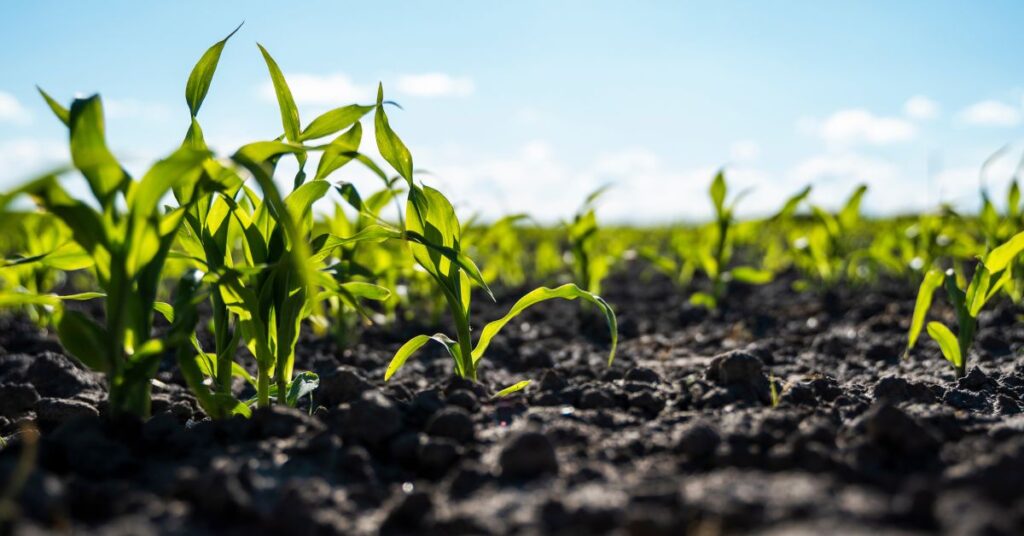You have a passion for agriculture, but farming demands thoughtful preparation, strategic thinking, and a comprehensive understanding of agricultural practices and business operations. The path to becoming a successful farmer involves multiple interconnected steps, from initial planning and niche selection to resource acquisition and skill development.
Each phase presents challenges and opportunities. To establish a thriving agricultural enterprise, learn how to get started in the farming business!
Lay the Groundwork Through Strategic Planning
Every successful farming venture begins with comprehensive planning that addresses both immediate needs and long-term goals. A structured business plan serves as the roadmap, outlining your vision, target market, financial projections, and operational strategies. This document becomes invaluable when seeking funding, making operational decisions, and measuring progress against established benchmarks.
Market research forms the foundation of effective planning. Understanding local demand patterns, seasonal fluctuations, and consumer preferences helps inform crop selection and production timing.
Analyzing competitor operations provides insights into pricing strategies, distribution channels, and potential market gaps. The research phase reveals opportunities that might not be immediately obvious, such as underserved specialty markets and seasonal demand spikes.
Financial Planning and Regulatory Compliance
Financial planning requires particular attention to cash flow management, as farming operations typically involve significant upfront investments with delayed returns. Creating realistic budgets that account for seasonal variations, equipment purchases, and unexpected expenses helps prevent financial strain during critical growing periods.
Regulatory compliance represents another crucial planning element. Understanding zoning regulations, environmental requirements, and food safety standards prevents delays and legal complications. Many jurisdictions offer resources and support programs specifically designed to help new farmers navigate these requirements.

Select an Agricultural Niche
One of the best ways to get into the farming business is to find a niche. The diversity of farming opportunities allows entrepreneurs to align their operations with personal interests, local market conditions, and available resources.
Organic vegetable production appeals to health-conscious consumers and typically commands premium prices. However, it requires intensive labor and strict certification processes.
Livestock operations, including cattle, poultry, and sheep, offer different risk profiles and market dynamics. Specialty crop farming presents unique opportunities for differentiation and premium pricing.
As you’ll learn below, your options go further than just the types of crops you grow or livestock you care for.
Agritourism and Value-Added Agriculture
Agritourism combines farming with experiential offerings, creating multiple revenue streams through farm visits, educational programs, and seasonal events. This approach can provide steady income while building strong community connections and brand loyalty. Keep in mind that it requires additional skills in hospitality and event management.
Value-added agriculture involves processing raw farm products into finished goods, such as converting milk into cheese or transforming fruits into preserves. It can significantly increase profit margins but requires additional equipment, facilities, and regulatory compliance related to food processing.
The key to successful niche selection lies in matching your chosen focus area with local market demand, available resources, and personal expertise. Conducting thorough market analysis and starting with a manageable scope allows for gradual expansion as experience and resources grow.
Secure Essential Resources
Land acquisition represents the most significant resource challenge for new farmers. Purchasing farmland requires substantial capital and long-term commitment, while leasing arrangements offer greater flexibility but less control over land use decisions.
Instead of seeking out individual properties, consider looking at land auctions for farmland. That way, you can find high-quality properties at a great value. At Midwest Land Management, we are a land management companythat handles farmland auctions, so aspiring farmers can find the perfect location to begin their operations.
Find a Funding Source
Funding sources for farming operations extend beyond standard bank loans. Government programs through the USDA and state agricultural departments offer loans for farmers. Grant programs support specific initiatives such as organic certification, equipment purchases, or conservation practices.
Private funding options include agricultural investors, crowdfunding platforms, and community-supported agriculture programs. Equipment financing programs allow farmers to acquire necessary machinery without large upfront investments, though careful analysis of lease versus purchase options is essential.
The timing of resource acquisition affects both costs and operational efficiency. Purchasing equipment during off-seasons will typically yield better prices, while land acquisition timing can impact the first growing season’s success.
Developing relationships with equipment dealers, fellow farmers, and agricultural suppliers creates opportunities for favorable terms and shared resources.
Cultivate Agricultural Expertise
A key component of starting a farming business is developing the right skills to manage the operation effectively from day one. Farming knowledge encompasses technical skills, business acumen, and practical experience that develops over time.
Formal education through agricultural programs, extension services, and specialized workshops provides foundational knowledge about soil science, pest management, and crop production techniques.
Mentorship relationships with experienced farmers provide invaluable practical insights that you cannot learn from textbooks. Relationships can develop through agricultural organizations, farmers’ markets, or local farming communities.
Experienced farmers frequently share knowledge about local growing conditions, supplier relationships, and market dynamics that can accelerate learning curves.
Sharpen Your Skills
Hands-on experience through internships, apprenticeships, or employment on established farms provides exposure to daily operations, seasonal challenges, and problem-solving techniques.
This experience helps develop the intuitive understanding of plant and animal behavior that distinguishes successful farmers from those who struggle with practical implementation.
The agricultural industry constantly evolves with new technologies, sustainability practices, and consumer preferences, making ongoing education essential for long-term success. Building networks within the agricultural community creates opportunities for knowledge sharing, resource collaboration, and mutual support during challenging periods.

Devise a Successful Agricultural Future
Starting a farming business requires dedication, strategic planning, and a willingness to learn from both successes and setbacks. The agricultural industry offers unique rewards through direct connection to food production, environmental stewardship, and community contribution.
You’ll always face challenges in the beginning, but the growing demand for local and sustainable food creates opportunities for those willing to invest in continuous improvement.
Success in farming depends on translating your passion for farming into sustainable operations that can support families and communities over the long term. The combination of strategic planning, resource management, and continuous learning creates the foundation for thriving agricultural enterprises.
Take the time to thoroughly research, plan, and prepare so you can increase the likelihood of success while mitigating mistakes. The agricultural community stands ready to support new farmers who demonstrate a commitment to learning and contributing to sustainable food production.